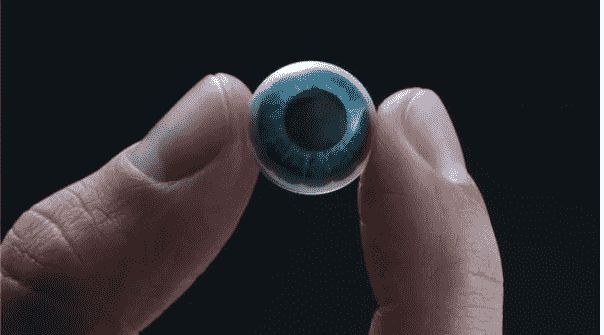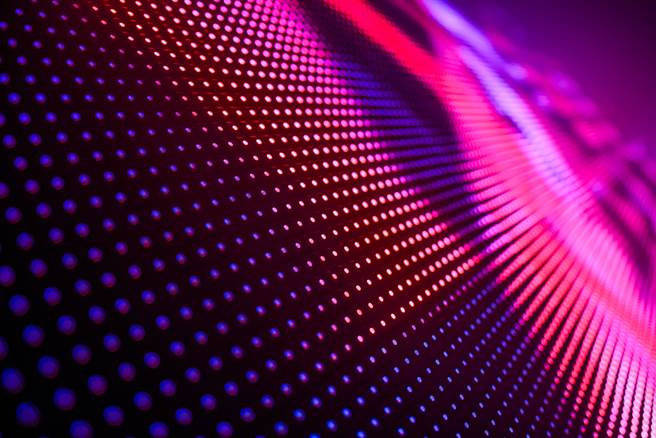MojoVision unveils MicroLED displays instead of AR glasses
Time: Feb 26, 2024Views:
Mojo Vision recently announced that it has developed the first full-color microdisplay by integrating red, green and blue subpixels into a single panel.
Mojo Vision says this is the world's highest density display and smallest Micro LED display at 28,000 ppi, with the core technology being the use of high-efficiency blue Micro LED devices at the sub-µm level and high-efficiency quantum dot ink for color conversion; the screen also integrates a micro-lens (micro-lens), which is the first full-color microdisplay in the world, and the first full-color microdisplay in the world. The screen also incorporates micro-lens optics, a custom CMOS backplane and an inter-wafer substrate bonding process.

Mojo Vision was founded by Drew Perkins in 2015, based in Saratoga, California, initially as a developer of smart contact lenses, the purpose of the founding is that in 2012, Perkins suffered from cataracts, in order to save his vision, the establishment of Mojo Vision.
Mojo Vision launched its self-developed AR contact lenses at CES 2021, positioned to help users have a better experience by integrating digital information into the world they are in. To develop the smart contact lens technology, Mojo Vision raised $205 million.

The AR contact lens consists of microelectronics and a microdisplay with a 14,000 pixels-per-inch Micro LED display less than 0.5 millimeters in diameter. The microdisplay projects text, video, and images into the user's field of view and connects to the Internet, allowing the user to access Internet information anytime, anywhere. In addition to the display, there are specialized accelerometers, gyroscopes, magnetometers, and motion algorithms, including a 5GHz radio and ARM Core M0 processor that transmits sensor data off the lens while uploading augmented reality (AR) content to the display. The battery is a medical-grade micro-shaped battery, distributed in the outer rim of the glasses, the battery capacity is not officially disclosed, but Mojo Vision has said that the final version of the product, can ensure that the glasses run all day long, enough to support the use of scenarios that require tracking of movement, including navigation, which is undoubtedly a huge pressure on the tech giants.
Mojo Vision's AR contact lenses feature a lens that sits on the white part of the eye and does not touch the cornea, with a diameter of 0.5 millimeters; the lenses used are patented technology that allows the eyes to receive the maximum amount of oxygen to keep them healthy. Users can choose to have the AR function temporarily disabled when they don't want to use it, and the contact lenses are currently available for private customization. in July 2021, the lenses successfully completed in-eye testing, and plans were made to move forward with the commercialization of the product.
However, in early 2023, Mojo Vision announced that due to the economic downturn and financing difficulties, it announced that it was laying off 75% of its workforce and changing its business strategy to temporarily set aside its AR contact lens plans in favor of working on the commercialization of Micro LEDs and shifting its business focus and resources to the development of Micro LED microdisplays.
Mojo Vision's move has also been recognized by the capital market, in October last year completed a $43.5 million in Series A financing (about RMB 318 million), more than twice its original financing target, becoming the highest financing funds in 2023 Micro LED manufacturers.
Previously quantum dot technology is generally used in LCD and OLED and other low light dose display, the industry in Micro LED using quantum dot technology also maintains a cautious attitude. In the face of the application of quantum dot technology in the field of AR devices, Mojo Vision said that the company has a high-performance quantum dot proprietary process, which can solve the industry's problems of high brightness and durability that are difficult to achieve with monolithic RGB displays.
Mojo Vision is currently working with AR optical waveguide manufacturer DigiLens to develop an AR glasses program.
recommend
Feb 03, 2024
Recently, overseas institutions have downgraded Apples rating. For a time, Apple from being bearish in mainland China du...
Hot








